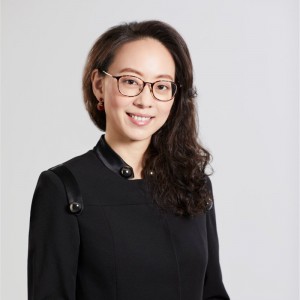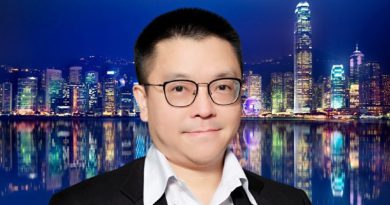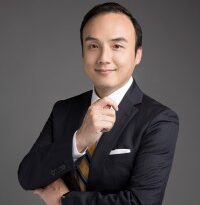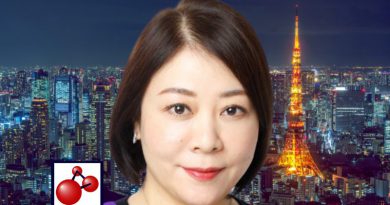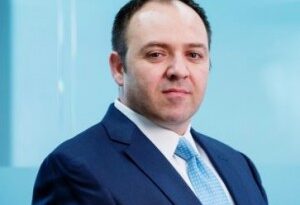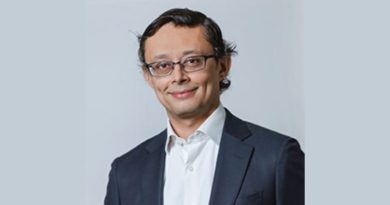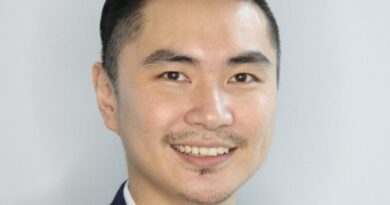SingAlliance’s Angel Chia on what’s needed to cut it in the finance world
Angel Chia is the CEO of SingAlliance’s Hong Kong business. This month she was appointed to the advisory board of Inflection Point Intelligence (IPI), a leading financial services education company, specialising in practical, career-related programs. IPI manages the Henley Executive Hedge Fund Program and the Henley Family Office Program, offered globally by Henley Business School. Previously, she was Singapore CEO of Shenwan Hongyuan and earlier in her career Angel has worked at Shenyin Wanguo, Temujin Global Asset Management, BNP Paribas and ABN AMRO. She was educated at the University of Toronto, is a graduate of the Henley Executive Hedge Fund Program and recently completed her MBA from the University of Chicago Booth School of Business. The Hedge Funds Club’s Stefan Nilsson had a chat with Angel about education, careers and standing out from the crowd in the competitive world of finance.
In your current role at SingAlliance as well as in previous roles, you have successfully built and managed teams of finance professionals. What are the most important things you look for when it comes to candidates’ pedigree and skills?
I have come to appreciate that there is absolutely no single avatar for a successful finance professional. Instead, by extremely broad strokes, I see “successful business builders/owners/managers of financial institutions”, “successful business development professionals”, “successful product experts”, and “successful support functional staff.” The most important traits to a builder/owner/manager include the ability to quickly scan the business environment to understand where his business fits in the larger environment, understand the value chain, competitive mapping, and the ability to nearly constantly pivot as the environment changes. A successful business development professional thinks critically about his own value proposition and seeks to understand clients’ business dynamics and challenges in order to offer the most suitable solution to clients, which, sometimes may be “not what I’m selling at this time.” A successful product expert, for example, an investment manager, naturally excels in his domain knowledge, a solid pedigree of education or job experiences certainly helps to set up for success. However, I think a product expert needs to be mindful of his clients – business development colleagues or end investors – to truly optimise his market value. Lastly, support functional staff: operations, compliance, legal, IT, even admin, would do so much better to inquire on a fuller picture of the whole business, and understand that all of these support functions are really “in support of” the development of business.
You have recently completed an MBA from the University of Chicago Booth School of Business. Booth has a stellar reputation in the hedge fund and broader alternative investment industry. Is it important that people in our industry get educated at top schools in order to get the right skills and get a brand on their CV that may help them in their career?
I literally spent 11 years of my career working towards being Booth worthy. An Executive MBA program, in my opinion, unlike a full-time MBA, is less so a CV booster, but a personal elevation journey for senior executives as we contemplate on how we move from career positioning to impact creation. More specifically, I would say that an EMBA helps little with product experts, who would do much better with a finance undergraduate degree, CFA, CAIA, or simply learn diligently on the job, or for support function professionals, who would probably benefit most by taking the IPI program. The multidisciplinary nature of an EMBA, coupled with the self-selection of student calibre for top schools, benefits generalists the most by providing instant access to best business practices across industries and geographies.
You have recently joined the advisory board of IPI, a firm that provides executive education in the finance industry, such as hedge fund and family office courses. What made you join IPI now?
I took the IPI hedge fund program in 2018 when I was the CEO of the Singapore subsidiary of a Chinese broker-dealer, as the company was expanding its business from institutional equity sell-side business, to build up an ex-China fund of hedge funds platform. The hedge fund program was hugely informative and helpful to me as I led my team to accumulate the necessary building blocks for the new business. The instructors, who are all practitioners in the hedge fund ecosystem, provided virtually an SOP to how to run a fund company: in areas of fund set-up, risk management, systems and technology, operational flow, fund-raising, and even financial budgeting and management for both fund and fund manager levels. Given the profound benefit I have personally received via the program, I was beyond delighted to learn that IPI is rolling out a Family Office program. In my current position, I manage a Hong Kong office of an External Asset Manager, providing wealth management services to HNW and UHNW. I encounter client inquires on setting up family offices on a daily basis, as both Singapore and Hong Kong race to become the family office hub of Asia. The move towards institutionalising family offices calls for a holistic understanding of the front/mid/back-office operations, not unlike those needed for hedge funds actually. I strongly believe that IPI stands to offer a practical manual-like certification program to those looking to set up and manage family offices, and I look forward to sharing these tools in my course of advisory work with my clients.
In your advisory role at IPI, are there any specific things in finance and the education of the next generation you want to particularly focus on?
Since I transitioned from institutional sell-side and buy-side positions into the wealth management space, I noticed how massively divided the two segments of the markets are, in terms of the economics, execution, systems, and consequently, professional talents. I do not believe such a divide is justified or sustainable. The emergence of family offices in Asia is an impetus that propels wealth management businesses like private banks, EAMs, single and multi-family offices and IFAs to adopt many practices and standards that have been made compulsory for hedge funds. I feel strongly that my personal transitional experience goes hand-in-hand with IPI’s progression of its program offering. Facing the next generation, I expect education to be two-way. The value of education through the transfer of practical experiences on the job by senior practitioners lies in the sheer size of data: much like experienced doctors are good simply because they’ve seen much more patients. But disruptions often come from younger generations simply because “they don’t know better”, they are not cursed by the knowledge of “how things are done.” Alongside the existing IPI programs, I think an element of ongoing coaching and mentoring amongst our instructors, partners, advisors and even between students and alumni is the area I aim to focus on fostering.
Will we see shorter, more specific courses such as IPI’s hedge fund program grow in importance for people who want to specialise and get ahead as competition for the best job opportunities is increasing?
Yes, 100%. The pandemic has accelerated such paradigm shift, in fact, starting from the faster pace by which financial market activities, business models and instruments are changing. The traditional ecosystem of market participants is quickly being disrupted and as such, the only way to stay current and relevant is to acquire immediately applicable, always up-to-date knowledge and skill boosts as the environment evolves. Programs like IPI, being online, allows for quick updating of training content even including instructor and mentor line-ups to ensure the students and alumni always remain “plugged in” to the market developments.

